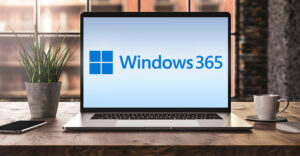
After strenuous deliberations, the European Union’s antitrust regulatory authority is giving Oracle’s proposed US$7.4 billion acquisition of Sun Microsystems a green light.
The EU’s approval is the culmination of a months-long dispute between Oracle and Europe that threatened the deal’s survival until Oracle signaled last month it would make some concessions concerning MySQL, the focus of concern.
After that, it was just a question of how hard the EU would push Oracle for further compromises. As it turned out, it didn’t push at all, Ryan Radia, an analyst with the Competitive Enterprise Institute, told the E-Commerce Times.
It was uncertain whether the EU would require additional conditions for the deal to accommodate certain stakeholders, he said. “Oracle will have to abide by the promises it made, but that is all.”
Oracle has already received approval from the U.S. Department of Justice for the transaction. Now it must get it from counterparts in China and Russia; neither is expected to pose complications.
October Surprise
In October, the European Commission threw a wrench into the acquisition’s global approval process by issuing a formal statement of objections to the deal. Concerns centered around Oracle ownership of Sun’s open source MySQL database software. Acquisition of MySQL by Oracle, according to the EC, could represent unacceptable consolidation in the database space.
CEO Larry Ellison said flat out that a spinoff of the database was unacceptable, prompting talk in some quarters that the deal would be derailed. The U.S. government got involved, with the Justice Department taking the unusual step of urging its European counterpart to approve the acquisition. In November, 59 Senators upped the ante with their own public plea to the EC, asking it to conclude the review.
Oracle’s Promise
In December Oracle made the critically important promise that it would not assert copyright claims over MySQL and that it would extend terms and conditions of existing commercial licenses of the database for five years.
The EC indicated that Oracle’s concessions were “an important new element to be taken into account” as part of its review.
The EC had a deadline of Jan. 27 to make its decision.
Credible Alternative
The Commission’s investigation concluded that another open source database — PostgreSQL — is a credible alternative to MySQL, according to news accounts.
The EC also noted that because MySQL is based on open source, its code base could be further developed or enhanced to compete with Oracle.
“Overall, there was never a compelling argument why the deal would have endangered the competitive markets or innovation in the long run,” Radia said.
With the EC on board, the implications of the acquisition are once again in the spotlight.
The EU’s approval of the merger is good news for everyone, Tim Yeaton, president and CEO of Black Duck Software, told the E-Commerce Times. “It supports the market dynamics that we think lead to innovation, particularly in the open source marketplace.”
Taking On Big Blue
Certainly, Sun and Oracle are poised to benefit as well.
The immediate result will be the revival of Sun Microsystems, which has been bleeding for several quarters while waiting for approval — to the tune of $100 million a month, according to Ellison.
Longer term, Oracle will have to digest and then integrate Sun’s various product lines into its own huge, multifaceted company. Having successfully merged such behemoths as Siebel, PeopleSoft and Hyperion, Oracle certainly has the creds to bring Sun Microsystems in house.
Ultimately, the Sun deal is about Oracle playing at the IBM level. Besting IBM, though, will be an immense task — one that will require all of Oracle’s resources, including the technology Sun is bringing to the table.
No wonder then, Oracle fought so hard to keep MySQL in the deal.

























































Social Media
See all Social Media